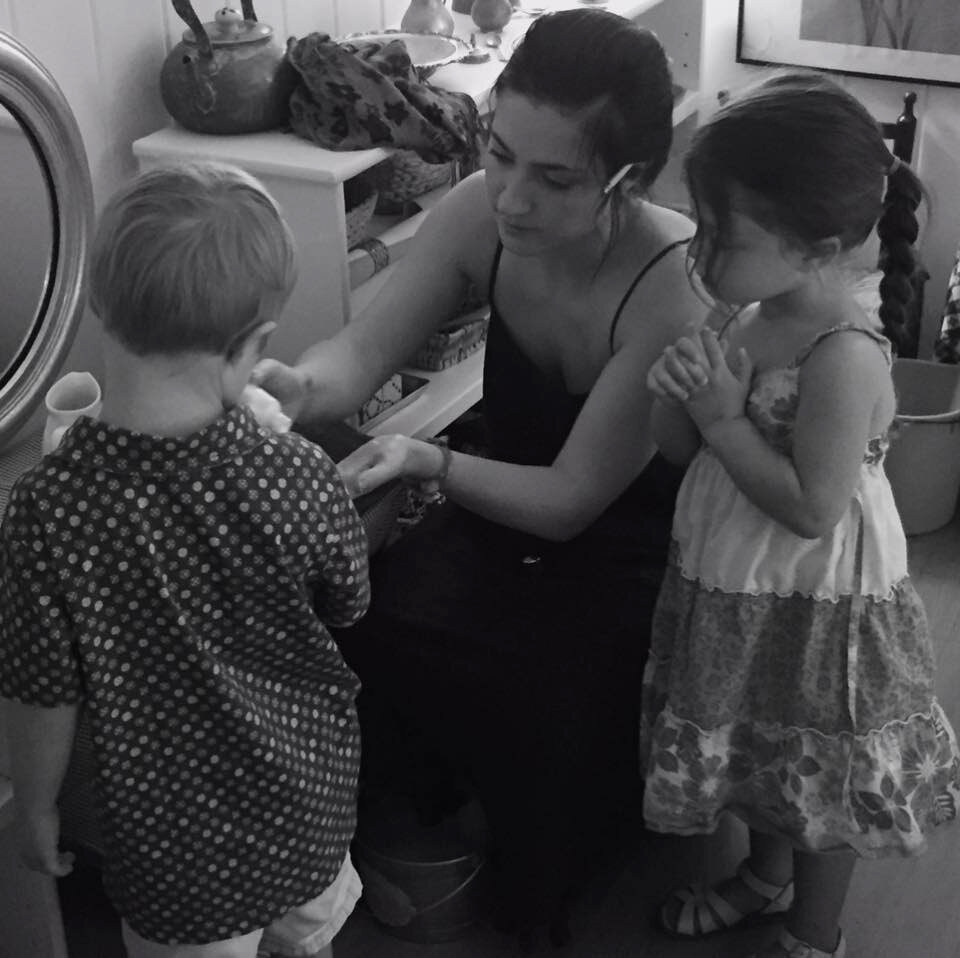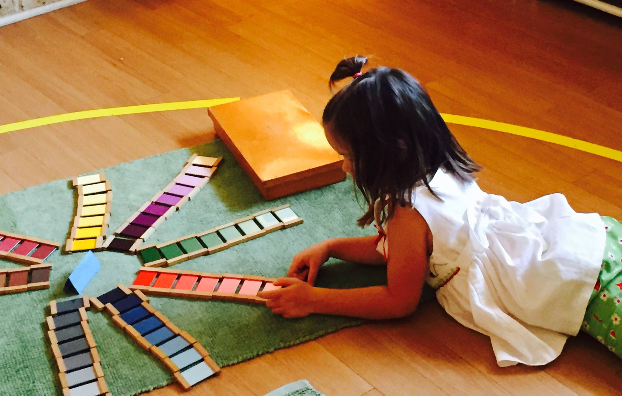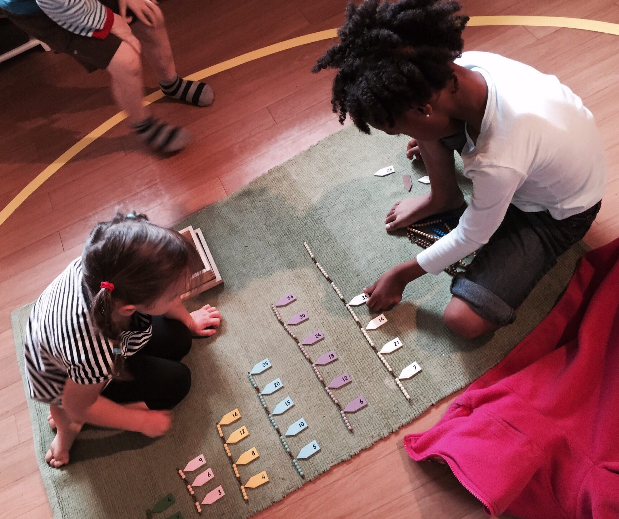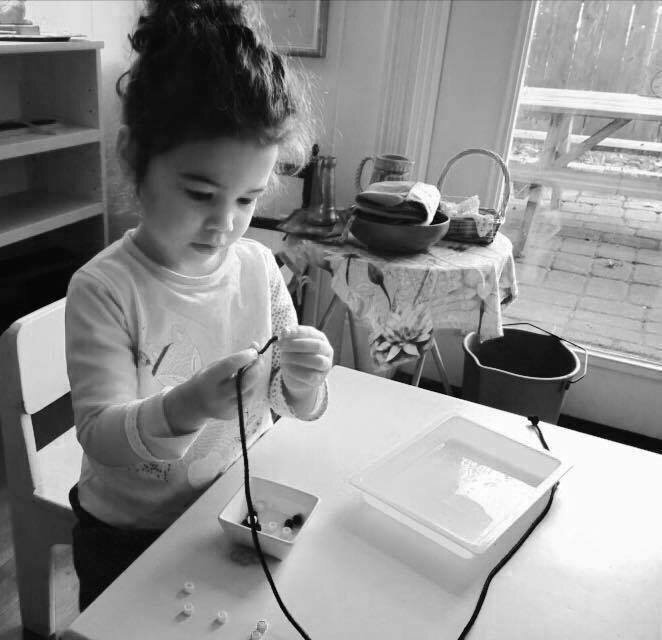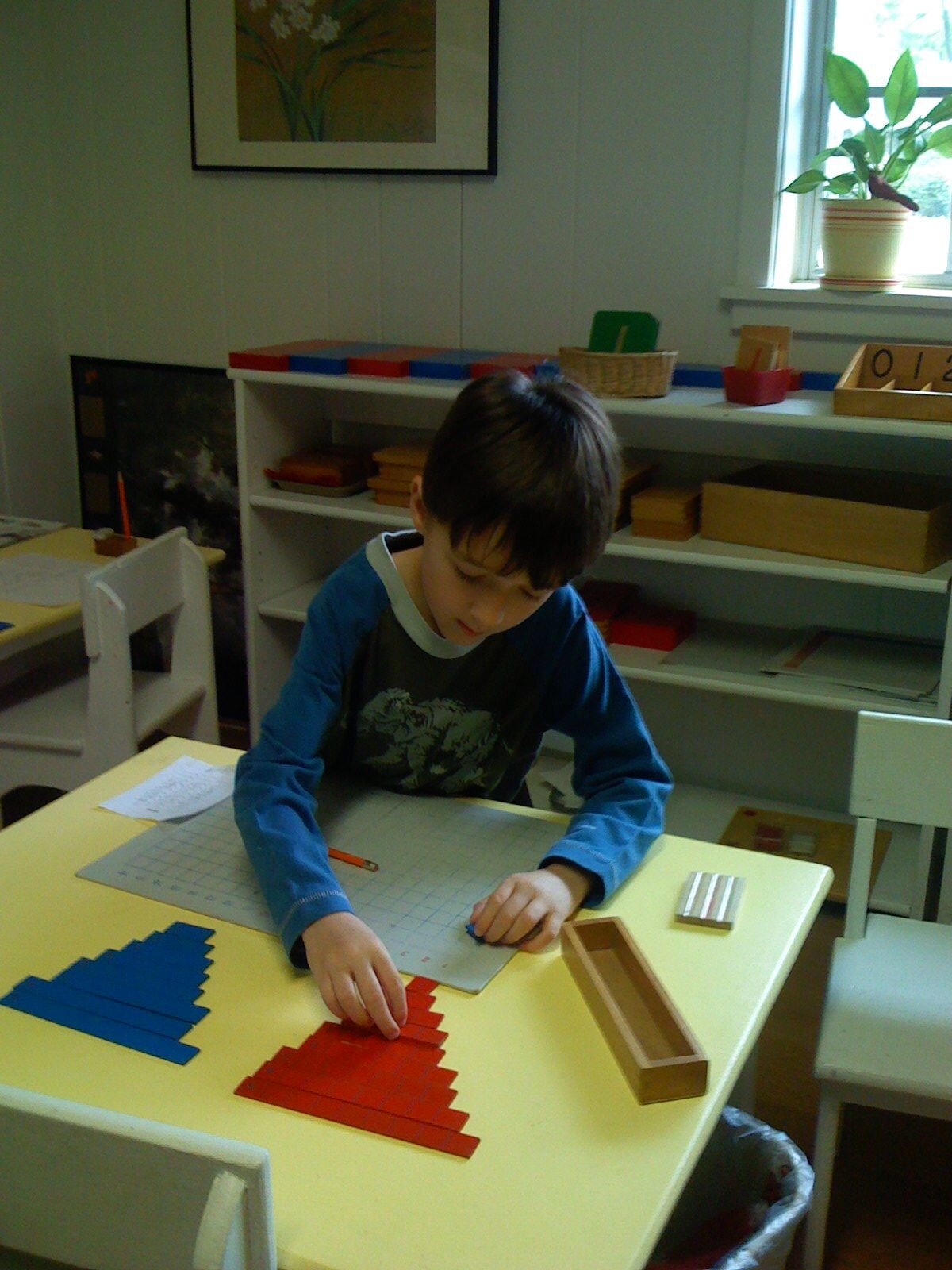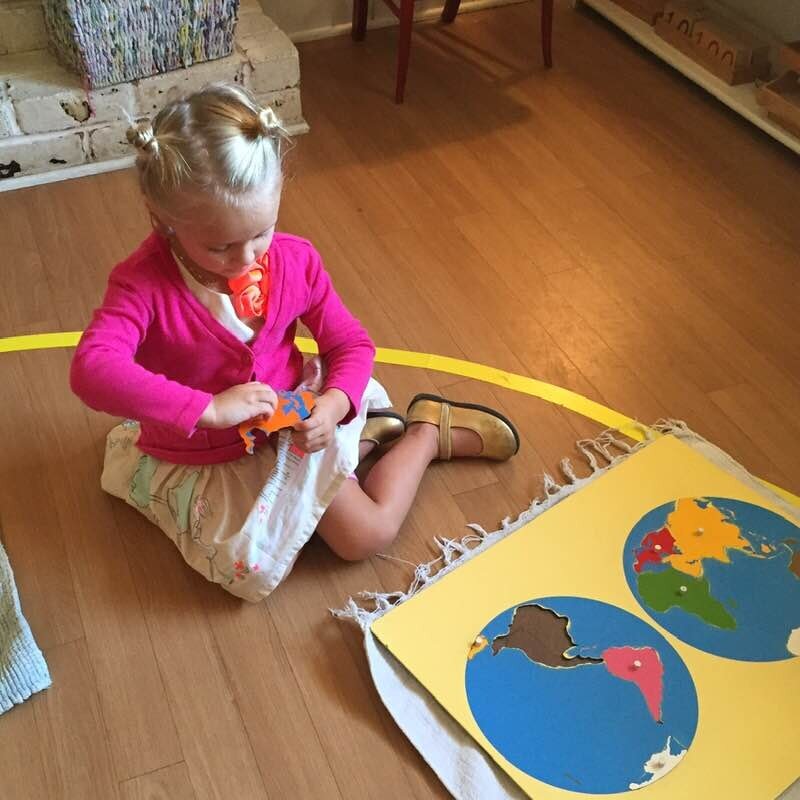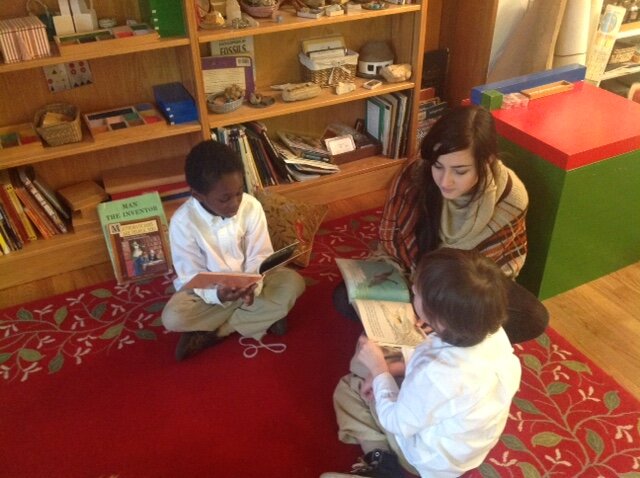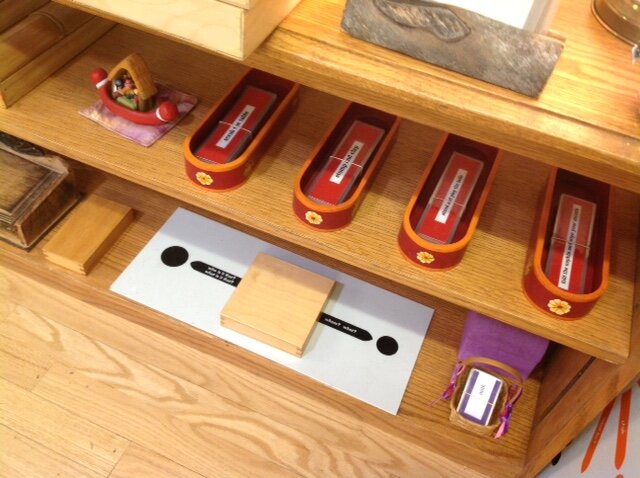Primary
3-6 years
When we consider Dr. Montessori’s immortal reference to “The Absorbent Mind” it is the primary child within the first plane of development we are envisioning. The child’s absorbent mind acts as a sponge, absorbing through the senses all an environment has to offer. In “The Casa de Bambini” or “The Children’s House” as the classrooms for children of three to six years of age are known we may witness this power, unique to the young child as it is revealed by the students so deeply engaged, and content in their work. Joy, thirst for knowledge, ability to use choice happily and productively are evident as are the highly trained and skilled (see Association Montessori Internationale) specialists offering individual and small group instruction in order to complement and support the child’s interests and needs. We see the teachers observing children’s behavior, guiding through best example and documenting in an effort to better prepare for each child. The child’s sensitive needs are for movement, tactile work, spoken and written expression, exploration, imagination, identification, repetition, collaboration and first of all: a great sense of internal order. Here, we are fully aware of these childhood tendencies and how to best address them. Realizing that these tendencies of the young child are developmentally transient, they are given our undivided respect and guidance. Each day we honor these needs with carefully thought out classroom environments, expertly designed lessons and implements, and on site, fully trained graduates dedicated to the needs and strengths of this time of childhood. Ms. V.C. Williams
Some areas you may notice include the following:
Language
This idea embodies so much more than meets the eye! Our language is the result of necessity fueled by imagination and wrapped in culture. With it the child passes along these gifts. Language may be developed and witnessed through all the senses. None must be ignored as we guide the language acquisition of comprehension, spoken, written and grammatical development. Some of the practices toward these ends include rich studies of music, visual art, science, geography, literature, drama, geometry and mathematics. More articles which illuminate the acquisition of reading skills and history of language may be reviewed in the parent portal.
Practical Life
Your child through love, admiration and respect may find fulfillment and joy in carrying out tasks that aid emotional and physical development. The child wishes to carry out actions to identify with the primary adults in his/her life.
Along the way confidence, precision, development of executive function, moral, motor and language development are greatly benefited. Tasks that may be viewed as mundane and simply necessary to maintain ourselves and our homes bring great contentment and pride for our children. A few examples are sweeping, juicing, stitchery, folding, washing and preparing fruit and vegetables, polishing, sorting, setting a table, hand-washing and dozens more!
Mathematics
Mathematics is always a part of the unconscious and conscious human experience perhaps beginning with the percussive experience in the womb. Value and order may be experienced even then. It seems no wonder then that the young child is fascinated with experience and acquisition for the symbols and figures and in turn their manipulation. Our students love their work in this area and tend to excel throughout their lives. The Primary, 3-6 child in a true Montessori program will often progress through all four math functions in both decimal and linear work.
Sensorial Work
Children must have rich opportunities to sort and order qualities through the senses. These include rich musical and geometric instruction, comparing objects and characteristics such as form, size, depth, breadth, taste, color, texture and weight just to name a few. Children acquire the comparative and superlative language skills as exactness and powers of sensorial discrimination are honed.
Basic Tenets In addition to the above the primary class must have an even balance of students three to six years of age. In the beginning of the year there may be one or two children who have not yet turned three years old and the eldest children may still be five years.
AG Montessori students often remain for three years in the primary “casa” with a consistent teacher. The student may be invited to join the Advanced Method elementary class after the final, kindergarten year of the Montessori primary experience. This brings greater advantages as the child has time to develop stable relationships and the guide knows just how to best guide each familiar student. In our classes every child is not new each year and this provides healthy continuity and insures excellent progress in all areas.
